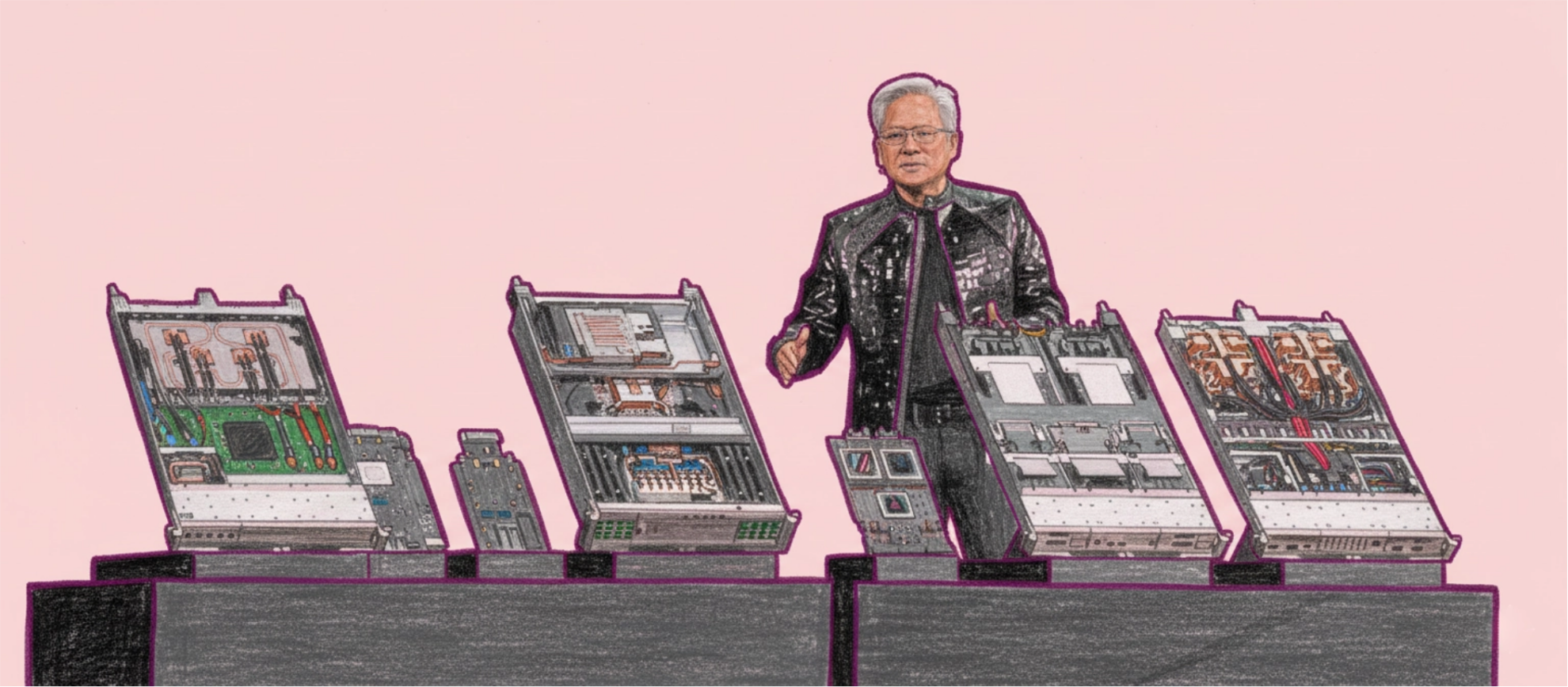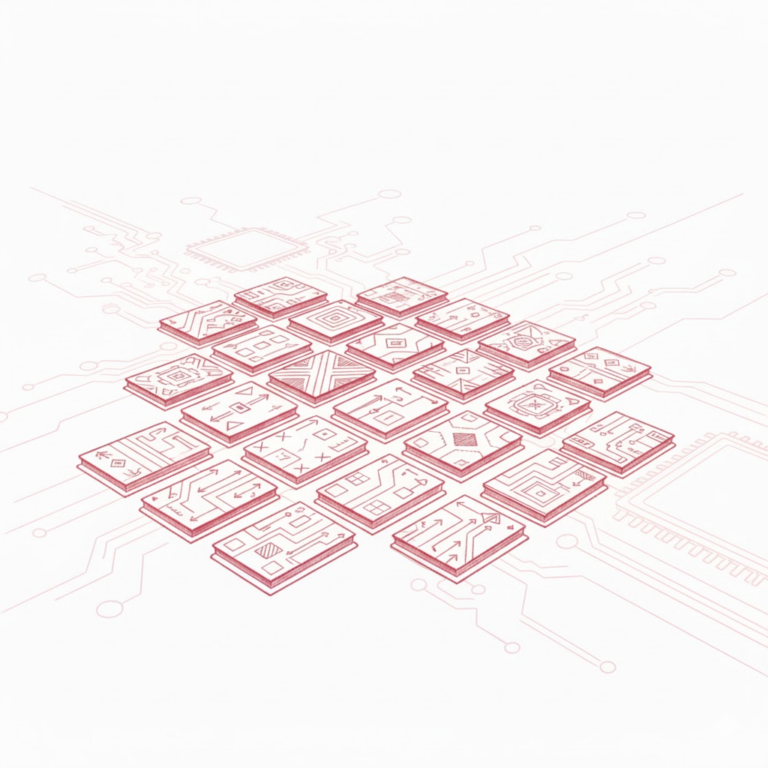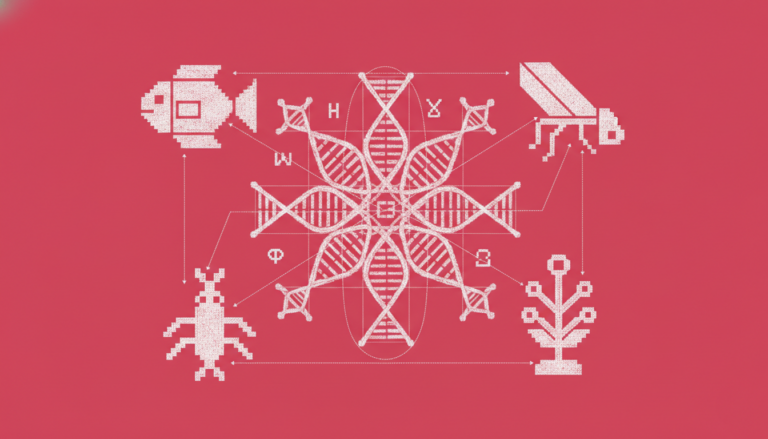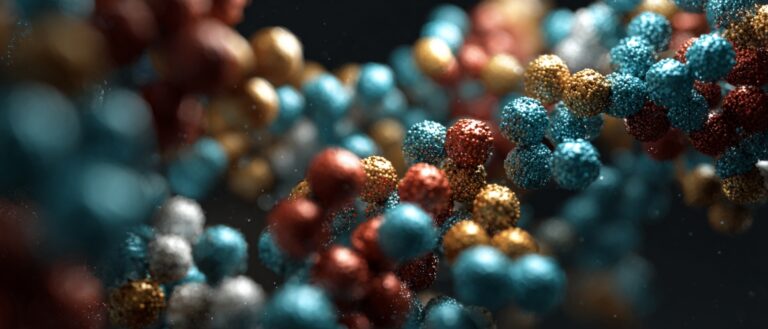Command Palette
Search for a command to run...
Receives Secondary Investment From NVIDIA! AI Pharmaceutical Company Terray Completes $120 Million Financing to Build the world's Largest Chemical Dataset
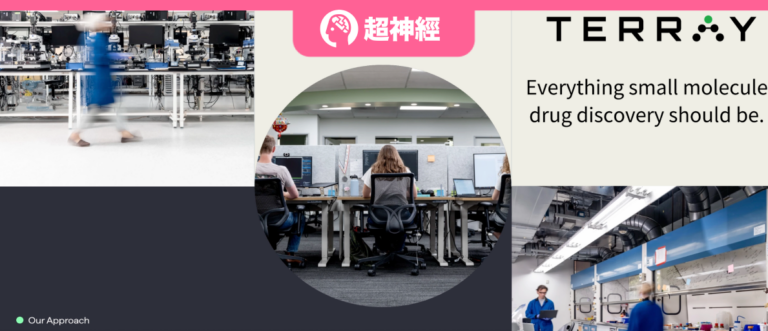
Recently, AI pharmaceutical company Terray Therapeutics announced the completion of a $120 million Series B financing round. This round of financing will be used to advance clinical trials of its internal immunology projects and further improve the company's generative AI platform tNova.
It is reported that Terray's financing was led by Nvidia's venture capital arm NVentures and new investor Bedford Ridge Capital.This is Nvidia's second investment in Terray.
In November 2023, NVIDIA had already made a high-risk equity investment in Terray. At that time, Terray Therapeutics had a batch of high-quality experimental data and wanted to further train its small molecule chemistry basic model and use generative AI to solve complex drug discovery problems, but scarce computing resources were a major obstacle they faced. NVIDIA promised to provide Terray with the NVIDIA DGX™ Cloud platform, using the NVIDIA AI software stack and NVIDIA's full-stack computing expertise to assist Terray in optimizing and expanding the development of its basic models.
In this regard, Mohamed (Sid) Siddeek, head of NVenture, said:“Generative AI is having a huge impact on the biotech industry, and we hope to help Terray achieve important breakthroughs in drug discovery and accelerate its programs into the clinic.”
Recently, Terray has released its industry-leading chemical foundation model COATI, which is a pre-trained, multimodal drug-like chemical space encoder-decoder model designed to solve the problem of conversion between molecular language and computational language. Specifically, COATI can convert chemical structures in experimental data into useful digital representations, enabling AI to process data more efficiently, and then use the digital representation of molecules as input to "decode" or generate molecules with certain properties that we need, thereby achieving generative molecular design.
Original COATI paper:
https://pubs.acs.org/doi/10.1021/acs.jcim.3c01753#Abstract

From this point of view, Terray has achieved the key goals set when it raised funds in 2023. Now, with the renewed support of NVIDIA, the company's future development has unlimited potential.
Complete dry-wet closed-loop AI drug discovery based on massive data
In the field of drug research and development, the "Double Ten Rule" is widely circulated, which means that it usually takes 10 years and more than $1 billion to develop a new drug.This long cycle and high cost are undoubtedly obstacles that need to be overcome in the development of new drugs.
AI has brought unprecedented opportunities to the pharmaceutical industry. By learning the underlying laws in massive amounts of data, such as molecular structure, protein conformation, and the interaction between molecules and diseases, it can determine drug targets in the human body, identify potential drug molecules, etc., and significantly shorten the drug development cycle. Andrew Hopkins, founder of AI pharmaceutical company Exscientia, even said that all drugs will be designed using AI in the future.
This is exactly the original intention of Terray. In order to cope with the many challenges in drug development, through an iterative approach,Terray builds the world's largest chemical dataset.These data continue to increase in value with each design and experimental cycle, and are further used to explore molecules and targets. More importantly, Terray has advantages that other companies do not have.That is, combining AI with wet experiments to form a closed loop on the data side.This closed loop allows them to not only make model predictions, but also verify the validity of the prediction results through experiments.
For more information about Terray, please visit:

Why does Terray have such a huge experimental data resource? Why does Terray use the AI+wet experiment model that is rare in other companies in drug development?
This brings us to Dr. Jacob Berlin, co-founder of Terray.

During his undergraduate studies at Harvard University, Jacob Berlin began to think about how to make better drugs. In order to deepen his research on small molecules, he obtained a Ph.D. in organometallic chemistry from the California Institute of Technology under the guidance of Nobel Prize winner Bob Grubbs. Later, during his postdoctoral research at the Massachusetts Institute of Technology, he not only designed a large number of molecules,There is also awareness of the inefficiencies of the traditional drug development process.He then did a second postdoctoral fellowship at Rice University, focusing on ultra-miniaturization of nanomaterials and technologies in hopes of speeding up drug discovery, which became Terray’s starting point.
“Terray’s technology was first conceived on a napkin, and I knew then that this was going to be a company.Because the technology we conceived can screen hundreds of millions of molecules in minutes and record their interactions with the cause of disease, it is clearly a drug development technology that is not suitable for academia,Because academia does not focus on development, commercialization, large-scale production and sales." said Jacob Berlin.
“Later, I worked as a professor at City of Hope for eight years. During that time, my laboratory focused on the intersection of nanomaterials and synthetic chemistry. I built a wet lab platform and created a large number of chemical databases based on it. The initial idea was gradually realized. At that moment, I knew it was time to find a home for this technology, so we founded a company - Terray.”

Subsequently, as Terray grew, AI became increasingly important. The team realized that understanding and leveraging its massive data sets required strong data science and AI technologies. In 2020, Narbe Mardirossian, a senior scientist at Amgen, joined Terray as chief technology officer. Under his leadership, Terray formed a dedicated AI team and successfully built an AI model that converts chemical data into mathematical models and then reverses them into AI models that can be used for drug development, namely COATI.
Today, Terray has industrialized the technology.
Terray's artificial intelligence platform tNova combines ultra-high throughput experiments, generative AI, biology, medicinal chemistry, automation and nanotechnology to enable drug development at unprecedented speed and precision. Based on its existing candidate drug library, researchers can measure billions of precise chemical data points every day and continuously synthesize libraries of millions of new candidate drugs. In the past three years, Terray has measured more than 5 billion target-ligand interactions, which is about 50 times the data of all public chemical research.

In short, Terray has turned drug discovery into a data problem driven by machine learning. More importantly, they have also combined real data from wet labs to achieve a dry-wet closed-loop AI drug discovery.The design-manufacturing-testing-analysis cycle for each target takes less than one month!
Unlike most drug development companies, at Terray, wet lab work cannot proceed smoothly without computational support, and vice versa. In fact, Terray was originally founded on wet lab practices, where researchers create a large amount of data, then test and model these data, and then validate them again with actual physical and chemical data, thus forming an efficient closed loop that greatly accelerates the process of drug discovery.
As Narbe Mardirossian puts it, “Closed-loop systems are absolutely critical. Honestly, Terray is probably the only place where you can iteratively test, hypothesize, and validate hypotheses in a matter of weeks or even days. Being able to develop models, make predictions, and validate those predictions in the real world is the dream of every computational chemist and machine learning scientist.”
Recruit talents internally and strengthen cooperation externally
However, to achieve the deep integration of wet lab and AI, Terray must rely on an interdisciplinary team, such as recruiting talents in chemistry, biology, computational chemistry, machine learning, automation, etc. It is based on this demand that elites from different fields gather at Terray with diverse expertise.This gave birth to an extraordinary team.
More Terray team information:
https://www.terraytx.com/team

In March 2022, Dr. Feroze (Fez) Ujjainwalla officially joined Terray as business director. As a senior expert with 26 years of experience in small molecule drug discovery, Fez has led multiple projects at the well-known company Merck and advanced conceptual drugs to the clinical development stage. His arrival fills Terray's understanding of the gap between drug discovery and clinical treatment and brings a unique industry perspective to the company.
In July of the same year, Terray appointed Dr. Fiona Black as a member of the Scientific Advisory Board. Dr. Fiona focuses on the interdisciplinary technology development of end-to-end product solutions and manufacturing processes. She once said: "Large-scale chemical-biological interaction data, combined with machine learning methods, will show disruptive innovation potential." This is also an important reason why she was attracted to Terray.
As the company continues to grow, Terray invited Dr. Bassil Dahiyat to serve as an independent director in November 2022. Bassil Dahiyat has been deeply involved in the field of biotechnology for 25 years and was selected as one of the "Top 100 Young Innovators" by MIT Technology Review for his outstanding contributions to protein design and therapeutic applications. He is well aware that the field of drug discovery has long been limited by scale and resources, and the large-scale experimental screening and advanced computational methods that the Terray platform can provide can help break through this bottleneck and discover potential new drug candidates.
In terms of strategic development, Terray invited Dr. John Maraganore, former founding CEO of Alnylam Pharmaceuticals, to serve as a strategic advisor to the board of directors and leadership team in December 2022. Dr. Maraganore is a senior expert in the biotechnology industry who has led the development and commercialization of four therapeutic drugs, ONPATTRO®, GIVLAARI®, OXLUMO® and Leqvio. He believes that data-driven platforms will drive continuous innovation, and Terray is solving long-standing pain points in drug discovery through large-scale, high-precision experimental data generation. He is full of confidence in Terray's future.
With the addition of many outstanding talents such as Fez, Fiona, Dahiyat and Maraganore, Terray's interdisciplinary team collaboration layout has been gradually improved, and it has gradually consolidated its position as a leader in generative AI-driven small molecule drug design.Their next plan is to promote clinical trials of AI pharmaceuticals.

Clinical trials are a necessary step to verify the efficacy and safety of new drugs, and are also an important step in whether a drug can eventually enter the market. In order to better promote clinical trials of new drugs, Terray specially appointed Dr. Sudha Parasuraman, who has extensive clinical development and business experience, as an independent director. Dr. Sudha has more than 20 years of professional experience in immunology, oncology, hematology and rare diseases. Jacob Berlin said: "With the support of Dr. Sudha's expertise, Terray's internal and cooperative projects will be better advanced to the clinical stage." At the same time,Cross-company cooperation is also an important way to promote the clinical development of drugs.
In October 2022, Terray reached a cooperation with the biopharmaceutical company Calico. As a company founded by Alphabet, Calico is committed to using advanced technologies and models to study biological issues related to human aging. This cooperation aims to discover and develop small molecule therapies for the treatment of aging-related diseases including cancer. According to the agreement, the two parties will use Terray's tNova platform to identify small molecule lead compounds for Calico's selected targets. The tNova platform uses high-density microarray technology and machine learning tools to systematically analyze the biochemical interactions between small molecules and disease targets, significantly accelerating the development of new therapies for aging-related diseases.
For more information about Calico, see:
https://www.calicolabs.com/

In December 2023, Terray took another important step and reached a multi-target cooperation agreement with Bristol Myers Squibb, a world-renowned biopharmaceutical company, to jointly explore small molecule therapeutic drugs for specific diseases. During the cooperation, Terray will use its tNova platform to find and develop small molecule compounds for targets specified by Bristol Myers Squibb, and Bristol Myers Squibb will be responsible for the development and commercialization of these compounds.
For more information about Bristol Myers Squibb, please visit:
https://www.bms.com/

By continuously introducing talents and cross-company cooperation, Terray is steadily moving forward in accelerating the clinical process of new drugs. It is reported that Terray is developing new drugs for inflammatory diseases including lupus, psoriasis and rheumatoid arthritis, and the company expects that drugs will enter the clinical trial stage by early 2026.
Final Thoughts
In May 2024, AlphaFold 3, launched by Google DeepMind, caused a major sensation in the global scientific community. As an important advancement in artificial intelligence in the field of biotechnology, AlphaFold 3 successfully predicted the structure and interaction of all life molecules (proteins, DNA, RNA, ligands, etc.) with unprecedented accuracy. Compared with the best existing traditional methods, AlphaFold 3 found that the interaction between proteins and other types of molecules was at least 50% higher. This breakthrough not only represents a technological leap, but also indicates that the biotechnology industry is moving towards a new era.
More details about AlphaFold 3:
https://blog.google/technology/ai/google-deepmind-isomorphic-alphafold-3-ai-model/
At the same time, the activity of the AI pharmaceutical market continues to be hot. China Economic Weekly reported that in the first half of 2024, there were 69 financing activities in the global AI pharmaceutical field, with an investment of US$3.336 billion, far exceeding the same period in 2023. As of May 2024, more than 70 AI pharmaceutical R&D pipelines have entered the clinical stage worldwide, and the success rate of AI-generated drug molecules in Phase I clinical trials is as high as 80%-90%, which is far higher than the historical average of 50%. This acceleration from R&D to clinical trials has greatly improved the efficiency and marketization process of drug R&D, and investors' confidence in the field of AI pharmaceuticals is gradually recovering.
It is worth mentioning that NVIDIA is particularly active in this wave of investment in AI medicine.Its CEO Huang Renxun directly stated that AI medicine will become the next golden track. Through its investment department NVentures, NVIDIA has invested heavily in many AI pharmaceutical companies, and through its advanced computing platforms and technologies, it has promoted the recovery and vigorous development of the entire industry. With the dual support of technology and funds, NVIDIA's position in the field of AI pharmaceuticals remains far ahead.

From the technological breakthrough of AlphaFold 3, to the booming global AI pharmaceutical market, to NVIDIA's in-depth layout in this field, the AI pharmaceutical industry has shown a vigorous development momentum, and new hopes for cure are slowly emerging. We are in an unprecedented era of innovation, and AI pharmaceuticals will open up new possibilities for human health.
References:
1.https://www.nvidia.com/en-us/case-studies/generative-ai-for-small-molecule-drug-discovery/
5.https://bydrug.pharmcube.com/news/detail/1ef833e66fb5f1653f19815c20e8a162
6.https://finance.sina.com.cn/roll/2024-07-24/doc-incfmyac7492110.shtml
